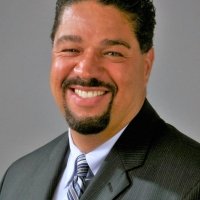Roger-Mark De Souza, the Wilson Center’s Director of Population, Environmental Security, and Resilience, will depart at the end of 2017 to assume the position of President and CEO of Sister Cities International.
Since 2013, De Souza has led the Center’s programming on climate change resilience, reproductive and maternal health, environmental security, and livelihoods, including through the Global Sustainability and Resilience Program, Environmental Change and Security Program, and Maternal Health Initiative. The Global Sustainability and Resilience Program, which De Souza helped launch, is the only program on the topic at a U.S. think tank. During his tenure, the Wilson Center was rated the number one think tank in the world for transdisciplinary work by the University of Pennsylvania.
Among his many innovative projects at the Center, he oversaw the production of “Healthy People, Healthy Environment,” three short documentary films on population, health, and environment, and was an author of “New Climate for Peace,” a report that helped spur commitments by the G7 foreign ministers to integrate climate considerations into security decisions.
“Roger-Mark has shared his unusual mix of deep experience and great passion with the Wilson Center for the past five years,” said President, Director, and CEO Jane Harman. “He will be greatly missed.”







